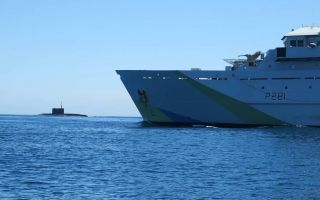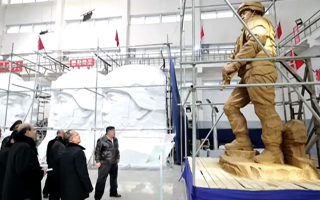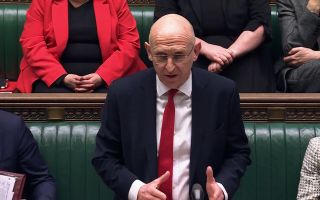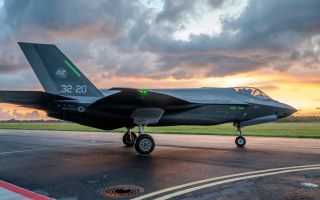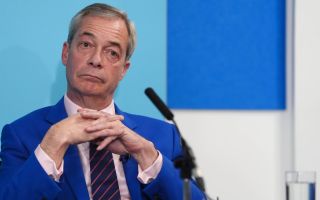
Europe must take the lead to secure lasting peace as US falters on Ukraine

The extraordinary events of the last few days are viewed so very differently this side of the pond than in the United States.
But there even seem to be some Americans who are as exasperated by the Trump-Vance tag team, giving some hope that all is not lost with our American cousins.
What is ruthlessly clear is that Europe must take the lead in trying to get an honest peace for the valiant Ukrainian population.
As Donald Trump withdraws US military aid and waddles off to swing his club in Mar-a-Lago, people are dying on the frontlines and in the towns and villages of Ukraine.
It is gratifying to see our new prime minister step up and show some leadership in this area, so lacking in Europe for far too long.
What happens next may not be so dependent on Trump anymore, thank God, but if he manages to understand that his true friends are not residing in Moscow and the further east, his support will be most welcome.
Britain and Europe can do this on their own, be it manning and enforcing a ceasefire or helping Ukraine vanquish the tyrant in the Kremlin.
The former is much the preferred path, but Putin – and Trump – must understand that we will go all-in on both outcomes.
The European Nato countries in a "new" coalition force do have the military heft to produce a force of around 40,000 troops with the requisite firepower to deter any further Russian incursions into Ukraine.
Not the "20,000 troops from some random country that hasn't fought a war in 30 or 40 years", which vice-president JD Vance is suggesting!
Also, at a stretch, we have the airpower and, although the French and British nuclear capabilities are a might smaller than Putin's, he knows they are still sufficient to blow him off the planet if it ever came to that.
Talk that the UK and France cannot use their nuclear weapons without Trump's say-so is complete tosh, and as a former nuclear forces commander, I should know.
Of course, US fighter jets and intelligence would be hugely welcome.
Having served with US forces in two Gulf Wars and in Afghanistan, I cannot think of one US service person who would not jump to support us against our common foe, even if the new leaders in the White House seem at best ambivalent!
The second and much worse scenario is if there is no realistic peace offer from the Kremlin and Volodymyr Zelensky must fight on, which, if Trump and Vance continue to make useful noises to Putin, seems unlikely.
We, in Europe, cannot allow Russia to take Ukraine, as we all know it does not end there.
In this case, we must stump up the firepower to allow Ukraine to push the Russian whence he came.
After three years, that is probably not something Kyiv can achieve on its own just with our bullets and missiles.
Initially, I believe coalition air power could be introduced to the theatre of operations.
The Russian air force does not seem up to the task, and if we can achieve air superiority, it makes life so much easier for the tanks and infantry on the ground.
It's a big ask, but collectively, now including Finland and Sweden, I judge that power in the air can be achieved.
But ultimately, there may also have to be coalition "boots on the ground".
A well-trained armoured division or two, supported by artillery, drones and attack helicopters, could do serious damage to what is left of the Russian army, now mostly full of untrained conscripts.
Nobody wants this to plunge into a European war, but it is Trump, not Zelensky, who is making this more likely now.
Without the US firepower to threaten Putin, he is more likely to think he can prevail with his 'special military operation' at last.
It's rather easier for Trump to sit 4,000 miles away in his ivory tower trying to be smart than sit here in Europe with the Russian bear once again on the march.
What seems clear is that again we are in a 1939 situation, but this time our American friends – or rather their leaders – are not just being ambivalent, but perhaps unwittingly helping the enemy.
We will see. Perhaps there is method in Trump's "madness"?
During the Second World War, we had Churchill galvanise the country and our allies and convince the US to join the fight.
Let's hope Sir Keir Starmer is much more than the grey-suited and good-natured lawyer of yesterday.
And if the last few days are to go by, he certainly appears more Churchillian than Chamberlain.
Hamish de Bretton-Gordon, a former Colonel and Commanding Officer of the Chemical, Biological, Radiological, and Nuclear Regiment, argues in his most recent opinion piece for BFBS Forces News that Europe's leadership must step up its military support to Ukraine.

